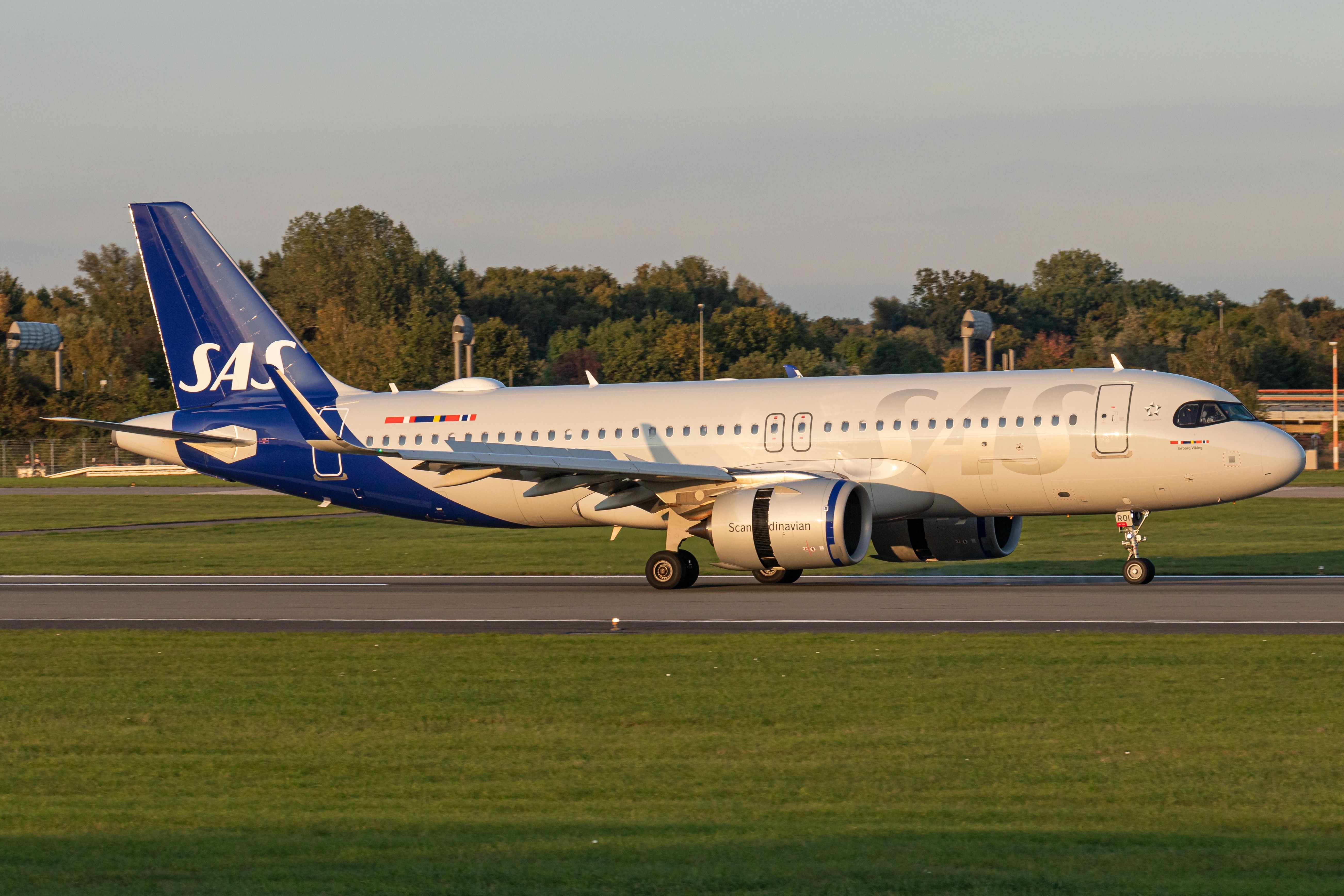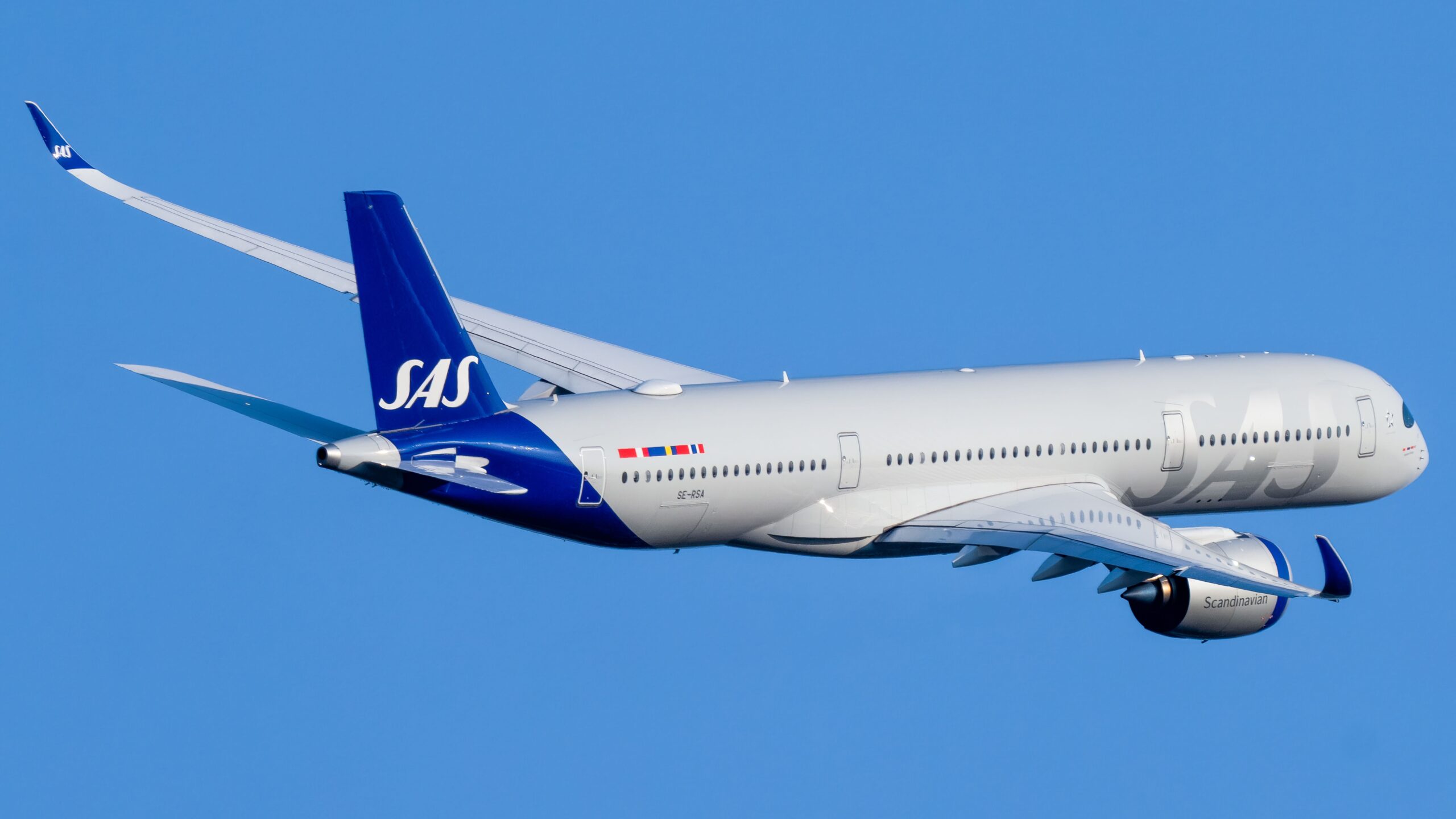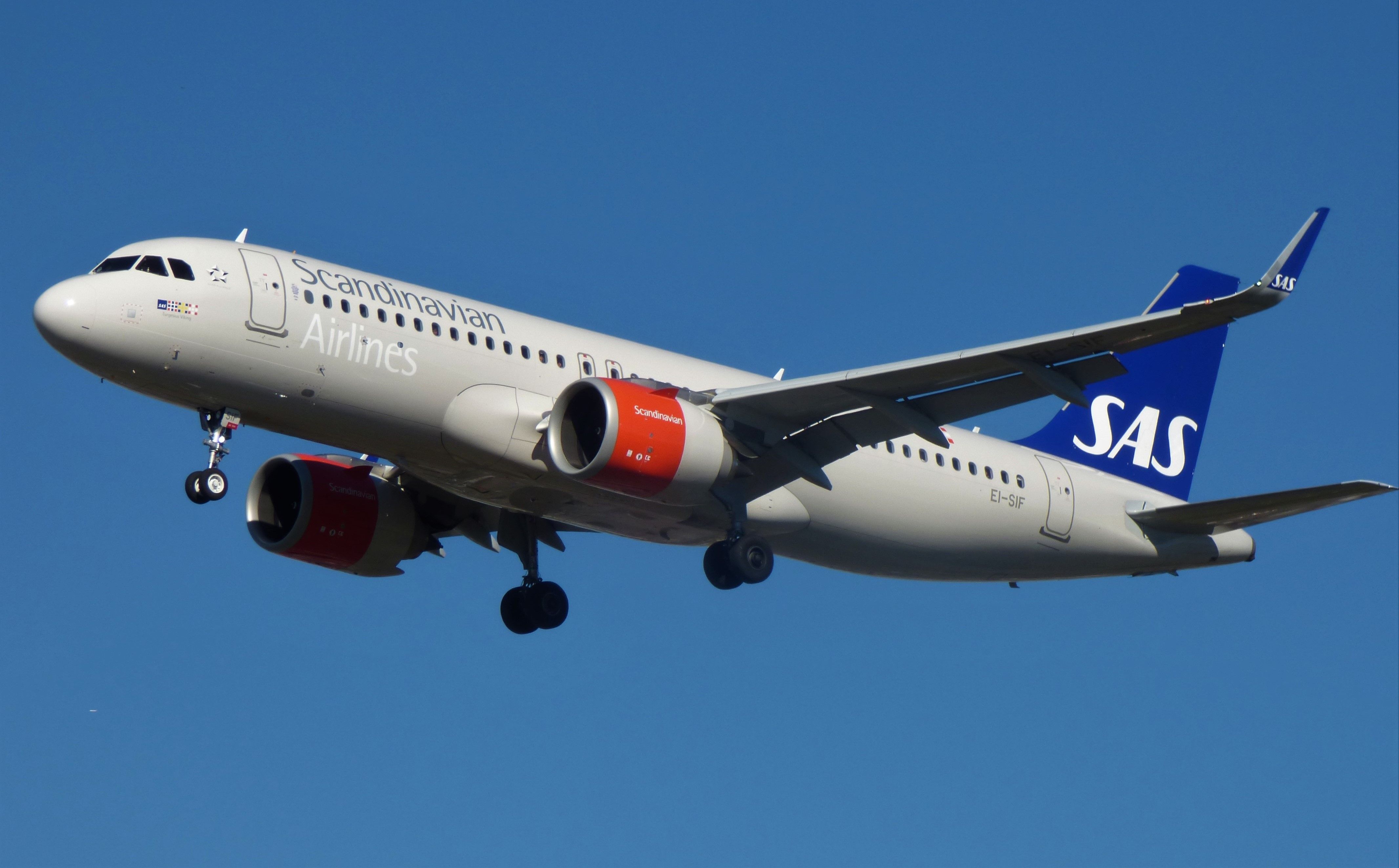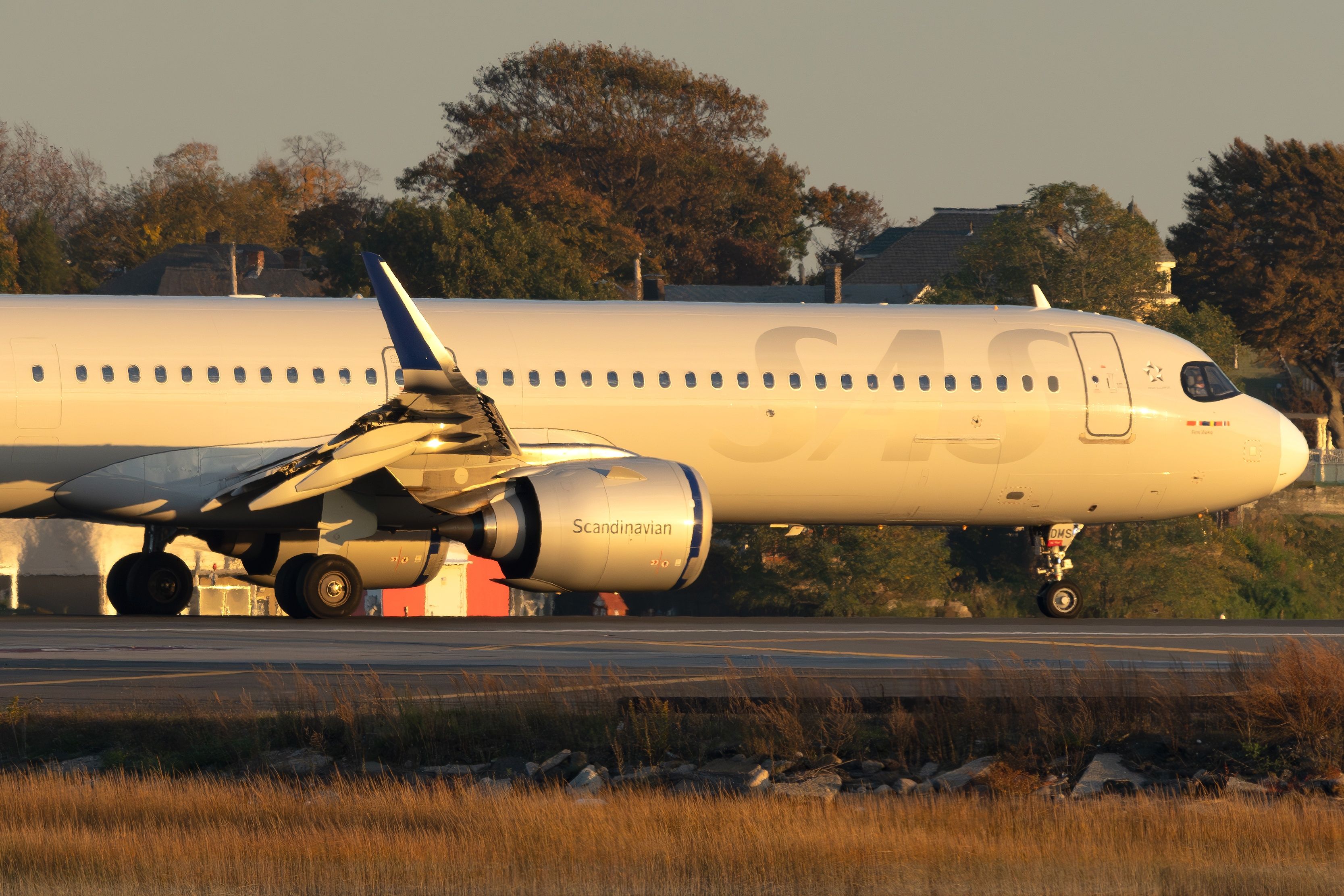Summary
- European Commission has approved up to €1.3 billion ($1.4 billion) in state aid for SAS to ensure its long-term viability and minimize market distortions.
- SAS is to reemerge smaller with a reduced fleet, limited ground handling, and maintenance business, releasing several slots to limit the influence on competition.
- The decision strengthens SAS’s position within the EU market, paving the way for the carrier’s restructuring and ensuring its future.
The European Commission has approved up to €1.3 billion ($1.4 billion) in restructuring state aid for Scandinavian Airlines (SAS) in order to ensure the company’s “long-term viability” and minimize competition-related distortions in the market.
The latest approval
The new approval from the Commission considers the impact of the carrier’s recent insolvency proceedings, which began in 2022. The carrier failed to restructure its operations effectively, especially in light of the impact of the COVID-19 pandemic.
Photo: Jake Hardiman | Simple Flying
In October 2022, the Commission approved a €833 million ($900 million) COVID-related recapitalization. This consisted of state aid measures that Denmark and Sweden took part in to help SAS, given the pandemic-persuaded travel restrictions. However, the General Court (the chief judicial authority of the European Union) annuled this.
The Commission attempted once again to reapprove the financial boost in November 2023. It is worth noting that this did not have any direct impact, given that the financing was already provided in 2020.
Brussels believes that the total €1.3 billion in aid – “which is supported with new aid from Sweden and Denmark through various instruments and amounts” is “proportionate” given that SAS is making its own contribution to its restructuring plan of €4.1 billion ($4.4 billion), in the form of fresh equity and convertible debt.

Related
US Bankruptcy Court Approves SAS’ Restructuring Plan
The airline still awaits other approvals before it can exit bankruptcy.
Margrethe Vestager, Executive Vice-President in charge of competition policy for the Commission says:
“The restructuring aid to SAS approved today will contribute to ensure air connectivity to and from Scandinavia to the benefit of European citizens. Our assessment showed that SAS’ restructuring plan will ensure its viability in the long term.
SAS will reemerge smaller
Attached to the state aid are various conditions that could mean SAS has to limit its growth. Vestager explains:
“To limit any possible distortions triggered by the public support, SAS will reduce its presence on the overall air transport activities through, among others, a reduced fleet, limited ground handling and maintenance business as well as the release of several slots.”
Brussels believes that these safeguards will ensure “distortions of competition” in the Single Market are limited, through an overall reduction in the SAS operation. Ch-aviation shows the airline currently operates 146 planes with an additional 10 on order.

Related
SAS Set To Leave Chapter 11 Bankruptcy After 1.5 Years
The Air France-KLM-backed rescue package remains subject to final approvals by US courts in early 2024.
Details of this reduction are unclear, although it could include scaled-down activity at some of its main hubs in Copenhagen, Stockholm, and Oslo, where the airline has a significant market share. Based on Cirium data, the airline controls the following percentage of each market by number of operations per week (based on data from June 2024).
|
Airport |
Market share (by number of operations/week) |
|
Copenhagen Kastrup (CPH) |
39% |
|
Stockholm Arlanda (ARN) |
38% |
|
Oslo Gandermoen (OSL) |
36% |
When asked by Simple Flying, SAS declined to comment on the details of the safeguards pending Brussels’ formal decision. The Commission did not immediately respond to our request for comment.
Photo: Vincenzo Pace | Simple Flying
An important period for EU aviation
This latest announcement by the Commission in approving SAS’ state aid is important in paving the way for the carrier’s restructuring. More than that, it will help ensure the airline’s future and strengthens its position within the EU market.
Next week, the Commission is also expected to announce its decision on the Lufthansa-ITA Airways merger which is currently subject to a so-called Phase 2 investigation on its impact on competition. The merger is expected to be approved, albeit with a number of conditions attached once again.
What do you make of the latest decision? Let us know in the comments below.



